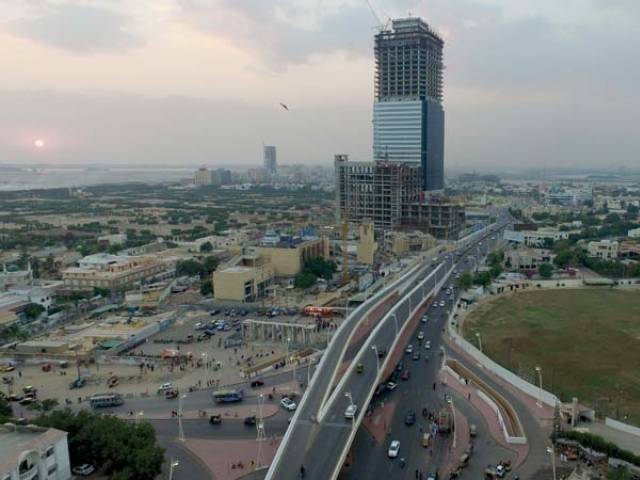
That is why, every other day, housing schemes are being launched. It means that the property boom is here. But is it here forever? That’s the million-dollar question.
Pakistan real estate boom
These positive sentiments about real estate are not completely ill-founded. They are based on their past track record. People who bought land 20 years ago have multiplied their investment and it is a human tendency to believe that things would turn out as they have happened in the past.
But this is a dangerous route to reason. According to this reasoning, a chicken, which is well fed by its keepers, must believe that it would never go under the knife, based on the past benevolent behaviour of the keepers.
We all know the inherent fallacy in the chicken’s reasoning. So, shall we continue to believe in the glorious past or is it time to take a step back and ponder?
What the people of Karachi believe today is exactly the same notion that the whole of Wall Street believed till 2007. They also believed that property prices cannot go down. Hence, we witnessed the sub-prime mortgage crisis in the United States which was an unprecedented financial debacle.
Two prominent investors – Nassim Nicholas Taleb and George Soros – made enormous money in those times. Taleb included black swans (events with very low probability of occurrence but very high impact), such as property price decline, in his financial models. On the other hand, Soros was saved because he used to bet against himself as well.
Barring the two unusual players on the Wall Street, everyone believed that property prices could not go down. So, to crack this puzzle of property investment, one must take the unconventional and the unusual route.
People with conventional wisdom always say that prices in metropolitan cities are much higher than prices in Karachi. Hence, there is further room for appreciation.
These people compare the prices of Karachi with Shanghai, Mumbai, Singapore and Dubai and observe that prices in Karachi are still much lower. So, let us compare some statistics of Karachi with these cities.
It is true that per square metre prices in Karachi ($760.78) are much lower than average per square metre prices ($8,824.60) in the metropolitans.
However, we must realise that the fundamental value of a real estate investment is largely influenced by its rental value. Rent-to-price ratio in Karachi (0.54) is lower than the ratio of Dubai (0.83) only. Shanghai, Mumbai and Singapore have much lower rent-to-price ratios than Karachi.
This means that, on average, rents in Karachi have already peaked as a return on investment relative to other big cities. Furthermore, people in Karachi are already paying much more rent in comparison to their salaries.
Rent-to-salary ratio of Karachi (1.30) is only lower than the ratio of Mumbai (2.07) and Shanghai (1.88). Dubai and Singapore have lower rent-to-salary ratios.
This means that, on average, people in Karachi are paying too much rent in comparison to their income when compared with other big cities.
From Dubai back to Pakistan: the real estate investors’ journey
The only plausible reason for such high prices in Karachi is the burial of illicit money in the property market. Furthermore, tax avoidance also makes property investment a lucrative strategy.
A few changes in regulations (filer/non-filer issue) have been tried to curb the above two avenues. Otherwise, as per the rental yield analysis, fundamentals of property investment in Karachi seem very weak.
We all know deep down in our hearts that these prices can’t go up forever. Yet, the herd mentality, marketing noise and the fear of losing a big investment opportunity compels us to believe otherwise. But it is time to hold our horses and take a step back to ponder Taleb and Soros.
The writer is a corporate banker and teaches economics
Published in The Express Tribune, April 17th, 2017.
Like Business on Facebook, follow @TribuneBiz on Twitter to stay informed and join in the conversation.

1722586547-0/Untitled-design-(73)1722586547-0-165x106.webp)


1732326457-0/prime-(1)1732326457-0-165x106.webp)












COMMENTS (9)
Comments are moderated and generally will be posted if they are on-topic and not abusive.
For more information, please see our Comments FAQ